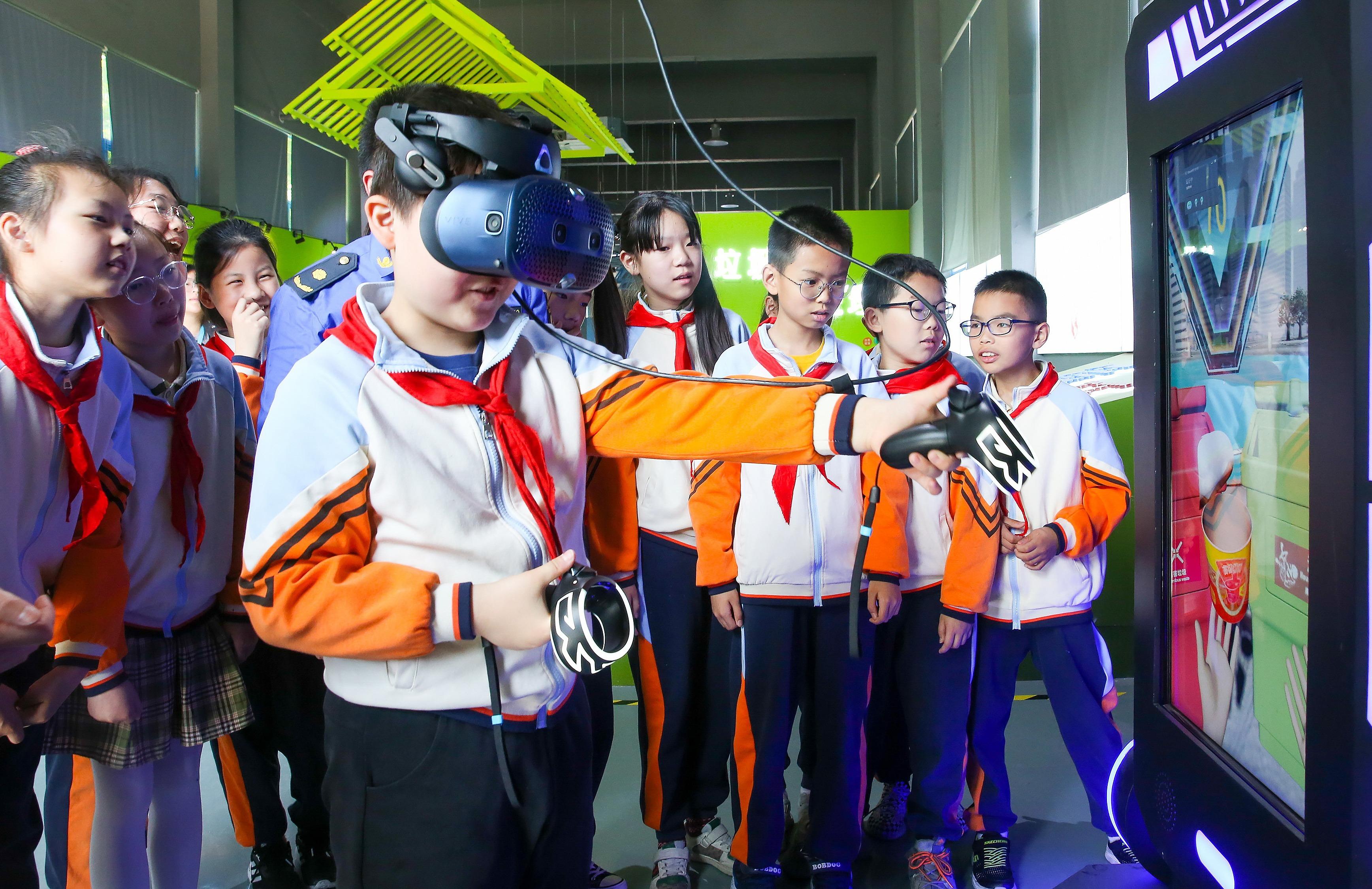Over 20 years of popularization sends know-how to all corners of country
 Elementary school students play a garbage sorting game using virtual reality equipment at a science popularization center in Rugao, Jiangsu province, on Tuesday. (XU HUI / FOR CHINA DAILY)
Elementary school students play a garbage sorting game using virtual reality equipment at a science popularization center in Rugao, Jiangsu province, on Tuesday. (XU HUI / FOR CHINA DAILY)
Mobile projects to popularize science have served more than 500 million people, expanding science and technology education to some of the most remote regions of the country, according to the China Science and Technology Museum on Monday.
Two nationwide projects consisting of a series of mobile science and technology museum exhibition tours began in 2011, and a fleet of science communication caravans carrying science education tools has been in operation for 23 years.
The purpose of these efforts is to provide free science education services to Chinese people who would otherwise have difficulties accessing science museums or quality science education resources, according to the museum.
As of April, the exhibition tour project has traveled to 5,686 sites in 1,888 county-level administrative regions, serving over 171 million people. Each tour lasts around two to three months and features around 50 interactive science education exhibits, bringing science education to people living in rural or impoverished areas of China.
As for the science caravans, they have held 391,000 events as of April, driving a total distance of over 53.7 million kilometers and serving over 338 million people. Each van holds a small science exhibition that can be easily set up in schools or local communities.
Yin Hao, president of the China Science and Technology Museum, said these mobile outreach efforts focus on improving education quality and tap into the potential of local resources.
"We will enhance openness and collaboration, attract more public resources and provide higher quality science education services to ordinary people at the grassroots level," he said.
China aims to have 15 percent of its citizens become scientifically literate by 2025 and increase this figure to 25 percent by 2035, according to a national guideline on promoting the popularization of science.
Released last year by the general offices of the Communist Party of China Central Committee and the State Council, China's Cabinet, the guideline said science popularization is equally as vital as scientific and technological innovation, a notion first highlighted by President Xi Jinping in 2016.
The guideline states China will significantly expand its public services for scientific communication and outreach, especially at the local level. It will also call for the whole of society to foster a culture of learning scientific knowledge.


